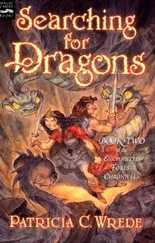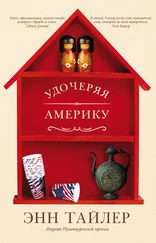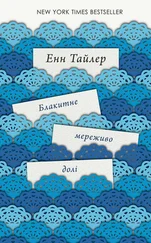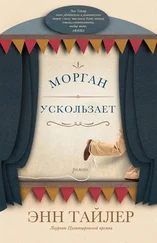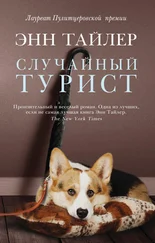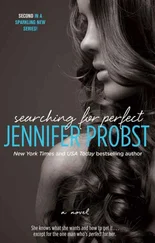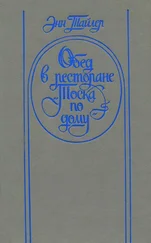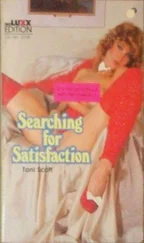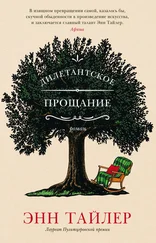“This house is even worse than the last,” said Meg.
“Never mind, here you’ll have a room of your own. You won’t have to sleep in the living room. Isn’t that going to be nice?”
“Yes, Mama,” Meg said.
Duncan was already pacing the yard when the others reached him “I’m going to put a row or two of corn here,” he told them. “Out back is too shady but see how much sun we get in front? I’m going to plow up the grass and plant corn and cucumbers. I have this plan for fertilizer, I’m going to buy a blender and grind up all our garbage with a little water. Pay attention, Justine. I want you to save everything, eggshells and orange peels and even bones. The bones we’ll pressure-cook first. Have we got a pressure-cooker? We’ll make a sort of jelly and spread that around here too.”
Meanwhile the cat had streaked under the crawlspace, where she would stay till the moving was over, and the grandfather was climbing the front steps all hunkered and disapproving, muttering to himself, making an inventory of every splinter and knothole and paint blister, every nail worked loose, windowscreen split, floorboard warped. Meg sat down on the very top step. “I’m cold,” she said.
Justine said, “Your father’s going to take up farming. Maybe we’ll have tomatoes.”
“Will we be here to harvest them?” Meg asked nobody.
Justine found the keys in one of her pockets and opened the door. They stepped into a hall smelling of mildew, littered with newspapers and broken cardboard boxes. The kitchen leading off it contained a refrigerator with a motor on top, a dirty gas stove, and a sink on stilts. There was a living room with a boarded-up fireplace. In the back were the bathroom and three bedrooms, all tiny and dark, but Justine swept through flinging up windowshades and stirring the thick, musty air. “Look! Someone left a pair of pliers,” she said. “And here’s a chair we can use for the porch.” She was a pack rat; all of them were. It was a family trait. You could tell that in a flash when they started carrying things in from the truck — the bales of ancient, curly-edged magazines, zipper bags bursting with unfashionable clothes, cardboard boxes marked Clippings, Used Wrapping Paper, Photos, Empty Bottles . Duncan and Justine staggered into the grandfather’s room carrying a steel filing cabinet from his old office, stuffed with carbon copies of all his personal correspondence for the twenty-three years since his retirement. In one corner of their own room Duncan stacked crates of machine parts and nameless metal objects picked up on walks, which he might someday want to use for some invention. He had cartons of books, most of them second-hand, dealing with things like the development of the quantum theory and the philosophy of Lao-tzu and the tribal life of Ila-speaking Northern Rhodesians. But when all of this clutter had been brought in (and it took the four of them two hours) there was next to nothing left in the truck. Their furniture was barely enough to make the house seem inhabited: three rust-stained mattresses, four kitchen chairs from Goodwill, Great-Grandma’s hand-carved rosewood dining table, a sagging sofa and easy chair donated by a neighbor two moves back, and three bureaus of Justine’s mother’s, their ornate feet and bow fronts self-conscious next to the bedsteads Duncan had constructed out of raw pine boards that gave off a yellow smell. For dishes they had a collection of dimestore plates, some light green, some flowered, some dark brown with white glaze dripped around the edges, and thermal mugs given away free when Esso changed to Exxon. The cutlery with its yellow plastic handles had been salvaged from Aunt Sarah’s English picnic basket. There were two saucepans and a skillet. (Justine did not like cooking.) They owned a broom and a sponge mop, but no dustpan, no vacuum cleaner, no squeegee, scrub bucket, or chamois cloth. (Justine did not like cleaning either.) No washing machine or dryer. When all the clothes in the house were dirty the family would lug them to the laundromat. Of course that was not much fun — the four of them struggling with their bulging pillow slips, the grandfather’s head ducked way, way low in case of passers-by, all of them a little bedraggled in their very last clean clothes unearthed from the bottom of the drawer or the back of the closet — but wasn’t it better than moving those shiny, heavy appliances from place to place? Why, by late afternoon they were completely settled in. There was nothing more to do. It was true that most of the boxes remained to be opened but that was nothing, some were still packed from the last move. There was no hurry. Justine was free to stretch out on her mattress, which had the piney-wood smell of home, and work her feet from her shoes and smile at the ceiling while the cat lay on her stomach like a twenty-pound, purring hot water bottle. Duncan could sit on the edge of the bed fooling with a stroboscope he had forgotten he owned. Meg could shut her door and unwrap, from its own special box, from seven layers of tissue paper, her framed photograph of a young man in a clerical robe at least a size too large, which she rewrapped almost immediately and slid to the back of her closet shelf. And in his room across the hall the grandfather could take a photo of his own from his pocket: Caleb Peck in tones of brown, framed in gold, wearing a hat and tie, his face stark and dignified, playing a violoncello while seated in an open stable door twenty feet off the ground.

3
Duncan took a tour of the Blue Bottle Antique Shop with Silas Amsel, the owner. Since he had already seen it when he applied for the job, he was not very interested. He ambled along behind fat, bearded Silas, yawning and drumming his fingers on passing tabletops. Spider-legged spinet desks, clocks with cherubs and shepherdesses and Father Time, dusty goblets, mirrors framed in knobby gold plaster, occasional tables too weak to bear the weight of a lamp — what was the sense in all this? To tell the truth, he had never thought about antiques before. He had been reared in a world where they were taken for granted. No one ever bought them, no one bought anything; the rooms were crowded with mellowed, well-kept furniture that appeared to have grown there, and whenever children departed they took several pieces with them but left the rooms as crowded as ever, somehow, as if more had sprouted in the night. No, what interested Duncan was the bin of contrivances he had found behind Silas’s counter: rusty cherry pitters, potato quillers, apple corers, fish scalers, an ingenious spiral cone for separating the white of an egg from the yolk. Beside the bin was a wicker valise that opened to make a chair for sitting by the seashore. Where had all that inventiveness got to, now? How had it faded away? The bin was marked with a felt-tip pen: Your choice, $1 . The valise, which was broken, could be bought for $2.50, if anyone could find it among the boots and paper bags. When Duncan took over, he would put the valise in the front window. (He leered suddenly at Silas’s broad, ponderous back.) He would polish the utensils and lay them out in rows. He would sell everything humdrum and buy ancient tools at barn auctions and flea markets, until the shop resembled a nineteenth-century inventor’s workroom and he could sit inhaling a combination of machine oil and wood and oxidizing iron, his favorite smells.
“Oh, I’m getting old, getting old,” said Silas, creaking up the steps at the back of the store to show him where the telephone was. “Be sorry to let loose of the reins but glad of the rest, believe me.”
In fact Silas was a good thirty years younger than Grandfather Peck, who could have run the shop with one hand tied behind him, but Duncan was used to this premature aging among people outside the family. Besides, if Silas weren’t retiring Duncan would still be looking for a job. He had thought, this time, that he might finally have used up all his mother’s relatives. He had wondered if he would ever escape from the health food store, which he had turned into a paying proposition and then, out of boredom, allowed to run down again. Weevils took over the stone-ground wheat and mold got the soy grits and the unsulphured raisins turned to pebbles. He lost his natural gaiety and his recklessness, he fell back on bourbon, solitaire, and a flat-faced silence that not even Justine could penetrate. Was there anything worse than feeling you were sealed in a place, to grow old and stale and finally die? His careless bookkeeping and erratic hours, already a matter of principle, became so obvious no employer could overlook them. That was the pattern of Duncan’s life — ventures begun light-heartedly, with enthusiasm but only half his attention, the other half devoted to plans for a perpetual motion machine made entirely of screen door springs or a method of breeding stingless honeybees or the entering of a contest, sponsored by an Englishman, for a one-man flying machine no bigger than an armchair. In the last twenty years he had been, among other things, a goat farmer, a photographer, and a cabinetmaker; he had worked in a pet store, a tobacconist’s, a record bar, and a gourmet shop; he had taken census, shorn sheep, and fertilized the lawns of a suburban development on a toy tractor. Almost all these jobs had been enjoyable, but only briefly. He began to grow restless. He noticed that he was treading an endless round of days just as his pinched, unimaginative family had done before him. He would start going to work at ten and then eleven, four days a week and then three; and next came the bourbon, the solitaire, the silence in which to reflect upon the bars of his cage. Next another venture. He was his own perpetual motion machine.
Читать дальше



